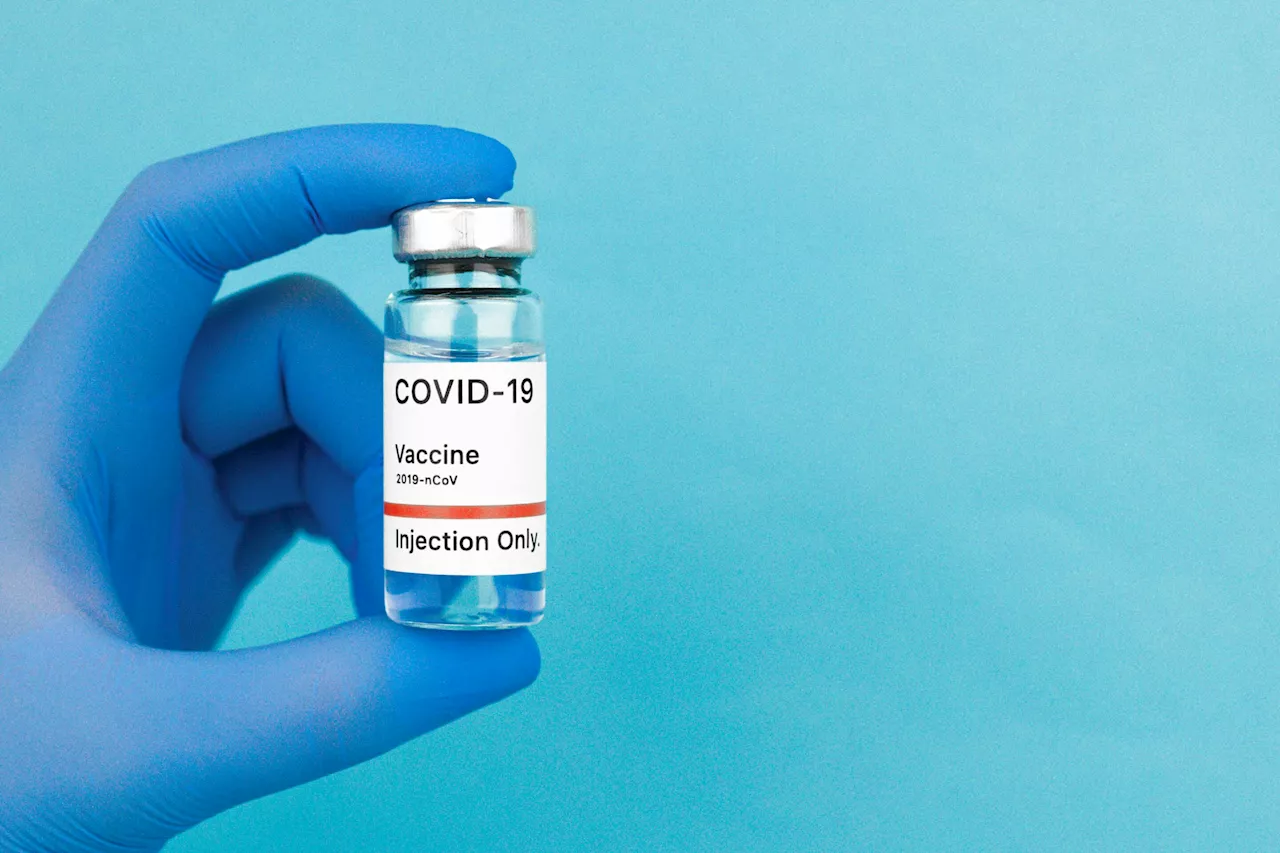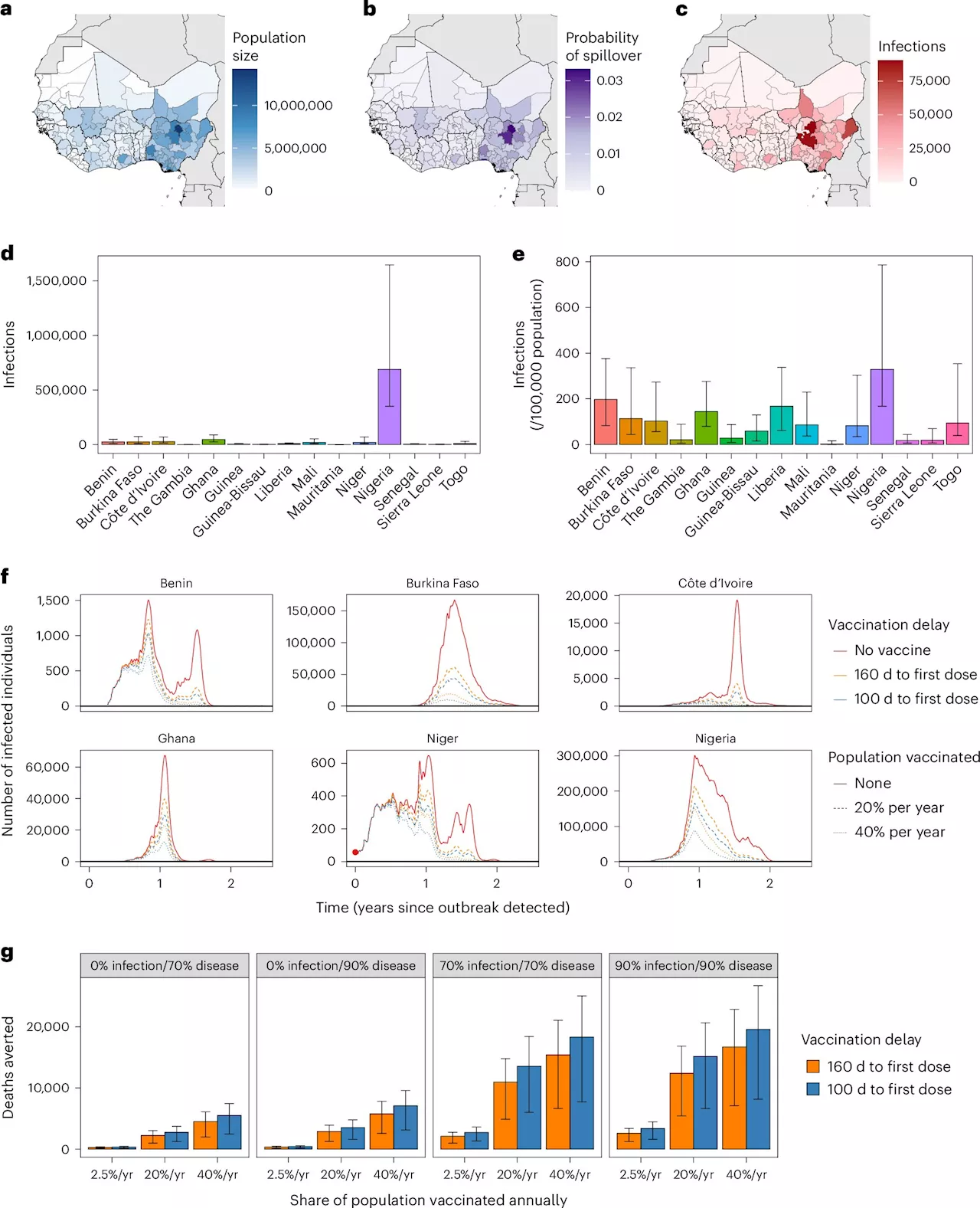Vaccination coverage for COVID-19 is high in both people with and without mental illness, according to a large multinational study led by researchers at Karolinska Institutet and published in Nature Communications.
Karolinska InstitutetSep 26 2024 However, Swedish registry data revealed that individuals with unmedicated mental illness have lower vaccination levels.
The pooled analysis from the COVIDMENT cohort showed that 85 per cent of individuals were vaccinated with the first dose of the COVID-19 vaccine . There was no statistically significant difference in vaccination levels in people with or without a mental illness diagnosis, or with or without anxiety or depressive symptoms.
Mary Barker, lead author, postdoctoral researcher at the Institute of Environmental Medicine, Karolinska Institutet
United Kingdom Latest News, United Kingdom Headlines
Similar News:You can also read news stories similar to this one that we have collected from other news sources.
 People with unmedicated mental illness are less likely to be vaccinated against COVID-19, finds studyA new study reveals that individuals with unmedicated mental illness are significantly less likely to receive COVID-19 vaccinations compared to those without such conditions.
People with unmedicated mental illness are less likely to be vaccinated against COVID-19, finds studyA new study reveals that individuals with unmedicated mental illness are significantly less likely to receive COVID-19 vaccinations compared to those without such conditions.
Read more »
 Myocarditis risks linked to COVID-19 vaccination explainedStudy examined myocarditis risks linked to COVID-19 mRNA vaccination, COVID-19 infection, and other causes. It found increased myocarditis incidence after vaccination but significantly lower mortality and hospitalization rates compared to myocarditis from other causes.
Myocarditis risks linked to COVID-19 vaccination explainedStudy examined myocarditis risks linked to COVID-19 mRNA vaccination, COVID-19 infection, and other causes. It found increased myocarditis incidence after vaccination but significantly lower mortality and hospitalization rates compared to myocarditis from other causes.
Read more »
 Fewer complications at 18 months seen with post-COVID-19 vaccination myocarditisPatients with post-COVID-19 mRNA vaccination myocarditis show a lower frequency of cardiovascular complications than those with conventional myocarditis or post-COVID-19 myocarditis at 18 months, according to a study published online Aug. 26 in the Journal of the American Medical Association.
Fewer complications at 18 months seen with post-COVID-19 vaccination myocarditisPatients with post-COVID-19 mRNA vaccination myocarditis show a lower frequency of cardiovascular complications than those with conventional myocarditis or post-COVID-19 myocarditis at 18 months, according to a study published online Aug. 26 in the Journal of the American Medical Association.
Read more »
 COVID-19 vaccination mandates boosted uptake among health care workersAt the peak of the COVID-19 pandemic in 2021, governments and health care centers across the country faced a difficult but important question: Should health care workers be required to obtain the COVID-19 vaccine?
COVID-19 vaccination mandates boosted uptake among health care workersAt the peak of the COVID-19 pandemic in 2021, governments and health care centers across the country faced a difficult but important question: Should health care workers be required to obtain the COVID-19 vaccine?
Read more »
 Preventive vaccination could be a key strategy against Lassa fever and the next pandemicResearchers at the University of Liverpool and the University of Oxford have for the first time been able to estimate the current burden of Lassa fever, project the impacts of a Lassa fever vaccination program and demonstrate how it may help avoid the next pandemic. The study is published in Nature Medicine.
Preventive vaccination could be a key strategy against Lassa fever and the next pandemicResearchers at the University of Liverpool and the University of Oxford have for the first time been able to estimate the current burden of Lassa fever, project the impacts of a Lassa fever vaccination program and demonstrate how it may help avoid the next pandemic. The study is published in Nature Medicine.
Read more »
 Shot of confidence: Building trust in vaccination programsA new paper in the Journal of Public Health finds that highlighting the harms of not getting vaccinated is a more effective message than emphasizing the benefits of vaccination for individual patients or the benefits to public health.
Shot of confidence: Building trust in vaccination programsA new paper in the Journal of Public Health finds that highlighting the harms of not getting vaccinated is a more effective message than emphasizing the benefits of vaccination for individual patients or the benefits to public health.
Read more »
